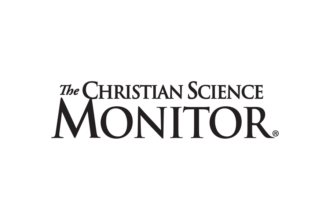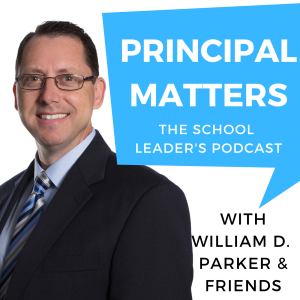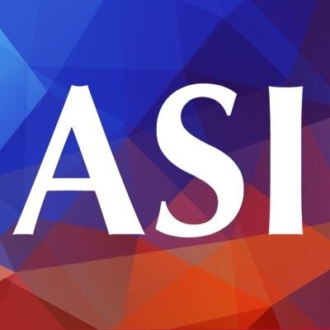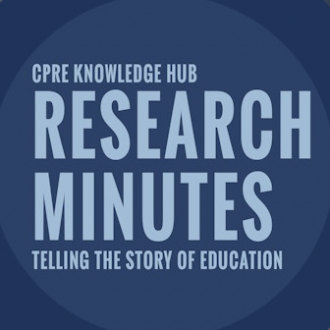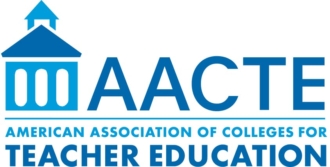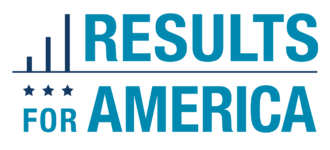Recent News
Latest news, blogs and features from EdResearch for Action.
From algebra to calculus (or stats!): Connecting the math pipeline
May 23, 2025
As outlined in a new EdResearch for Action brief that summarizes the research and history of Algebra I, auto-enrollment policies mark a meaningful shift from past practices. Historically, access to early Algebra I often relied on parent advocacy or teacher discretion, two mechanisms that often underidentified capable students from underrepresented and low-income backgrounds. By using objective criteria, automatic enrollment expands access to rigorous coursework while also avoiding the pitfalls of “one-size-fits-all” policies that either push all students into early Algebra I or delay access in middle school entirely.
Untangling Who Should Take Algebra — And When
May 14, 2025
"With district and school leaders clamoring for more meaningful guidance about who should take the class, when, and with what types of support, a new report from EdResearch for Action and the Annenberg Institute at Brown University tackles those issues head-on. “Over the past few decades, the research that has come out of those policy swings — from everyone should take it in eighth grade to no, we should make everyone take it in ninth grade — has kind of shown that that one-size-fits-all uniform push to algebra one is not meeting the needs of all students,” says Elizabeth Huffaker, a fellow at Stanford University’s Center for Education Policy Analysis and author of the report. “A lot of states and districts are experimenting with new models, and we wanted to bring to bear what we do know as states and districts try to do that.” Here’s what the report found and what state, district and school leaders should examine as they think about the most effective ways to set students up for success with Algebra I and beyond…"
The gender gap in math is back. The pandemic isn’t the only reason.
May 13, 2025
Enrollment in eighth grade algebra has been declining for years, said Elizabeth Huffaker, a research fellow at Stanford University’s Graduate School of Education and author of a brief on algebra access and placement. Curriculum changes saw more algebra content incorporated into middle school integrated math courses, making it harder to move some students ahead earlier. And “algebra for all” policies have not had the results advocates hoped for…
A Subset of Math Skills Predicts Algebra 1 Success. What Are They?
May 13, 2025
"States and districts have proposed a host of different solutions to improve Algebra 1 enrollment and pass rates—accelerating all students into the class in 8th grade, requiring all students to wait until 9th grade, and offering a double dose math of periods, among others. The report signals that instructional choices are just as important as these policy decisions, said Elizabeth Huffaker, an assistant professor of education at the University of Florida, and the author of a recent brief on evidence-based policy approaches to improve Algebra 1 outcomes. “All of our policies kind of need to be downstream of some really core teaching and learning principles,” she said."
Marshall Memo 1087
May 12, 2025
Ohio State provides tutors to help central Ohio K-12 students improve math, literacy skills
April 4, 2025
High-dosage tutoring is defined as one-on-one or small-group tutoring that takes place more than three days per week or at a rate of at least 50 hours over 36 weeks, according to the Annenberg Institute at Brown University. That research shows high-dosage tutoring can produce large learning gains for a wide range of students, including those who have fallen behind academically.
New Jersey Tutoring Corps Opens 2025 with Thirty-two Tutoring Sites Across NJ
February 19, 2025
"Tutors are often embedded in classrooms during the school day and receive support from instructional coaches and site coordinators. Tutors serve scholars in 30 to 60-minute embedded sessions during the school day, after school, or in summer programs two to three times per week. The program provides a 1:1 up to 1:3 tutor-to-scholar ratio, with the same tutor working with the same scholars throughout a program cycle, following the recommendations of the Annenberg Institute."
NJ nonprofit reports success of high-impact tutoring
October 28, 2024
"The tutoring model works, Bassett said, 'primarily because of the one-to-one relationships that we form with our scholars. We follow the Annenberg Institute’s tenets for high-impact tutoring. One of them is consistency, the same scholar working with the same tutor throughout the program, two to three times a week, 30 to 60 minutes a session and the ratios are so small, they make a huge difference.'" Katherine Bassett, chief executive officer of New Jersey Tutoring Corps Video mentions Annenberg around 4:12
Leveraging Community Based Organizations
October 8, 2024
Community-based organizations (CBOs), with their credibility and established relationships, can effectively serve as tutoring partners in their communities. In the 2023-24 Call to Effective Action (CEA), Accelerate awarded funds to seven CBOs committed to implementing, testing, and scaling a school day tutoring model, granting up to $150K to models with a strong theory of action and some evidence of structures and resources for success.
The Tutoring Revolution
October 8, 2024
More families are seeking one-on-one help for their kids. What does that tell us about 21st-century education?
What Schools Can Do to Help Immigrant Students Succeed
September 23, 2024
Approximately 1 million students in the United States are immigrants who have attended schools in the country for less than three years. Close to 700,000 students are undocumented, and about 7 percent of all students in U.S. public schools live with at least one undocumented parent, according to researchers.
FACT SHEET: Biden-Harris Administration Announces New Actions and Resources for Increasing Student Attendance and Engagement as Part of the White House Every Day Counts Summit
May 15, 2024
The Biden-Harris Administration has made historic investments to help ensure that all children can thrive in the 21st century – and that begins with students being in school every day. Chronic absenteeism – students missing 10% or more of school – emerged as a serious challenge during the COVID-19 pandemic due to school closures, which began during the previous Administration. The U.S. rate of chronic absenteeism reached about 31% in the 2021-2022 school year. There have been improvements in the 2022-2023 school year, with some American schools and school systems demonstrating significant progress based on proven strategies.
3 academic interventions policymakers can support to help get students back on track
October 5, 2023
Recent research out of NWEA explores what teachers can do to support students. Our collaboration with researchers outside of our organization has also helped us develop recommendations for policymakers. They are presented in our new brief with EdResearch for Action, a project of the Annenberg Institute at Brown University and Results for America. The brief highlights research-based academic interventions and digs into research to highlight the most promising interventions policymakers can support for accelerating student learning in math and reading. We focus on three interventions with the strongest research base—tutoring, summer school, and double-doses of math instruction—before discussing ways schools can create the conditions for academic acceleration practices to succeed.
Chronic absenteeism is making academic recovery harder in Ohio
September 25, 2023
Accelerating student learning remains a moral imperative, and a continuing challenge for Ohio’s policymakers and educational leaders. There has been much discussion about how to boost achievement, but one of the most basic ways to move the needle might be hiding in plain sight: simply making sure that students attend school. Unfortunately, absenteeism soared during the pandemic and remains at alarmingly high levels. Statewide, chronic absenteeism rates increased from 17 to 27 percent between 2018–19 and 2022–23. That translates to 418,382 students who were chronically absent last year. Such students miss more than 10 percent of the school year for any reason, whether excused or unexcused. Based on a 180-day year, that is equivalent to eighteen or more days of school—nearly a month worth of learning. That’s a lot of valuable instructional time lost.
Advancing Equitable Outcomes from Pre-K through the Workforce by Aligning State & Local Data Systems
August 18, 2023
The COVID-19 pandemic exacerbated pre-existing inequities that changed how individuals engage with pre-K programs, schools, colleges, employers, and the world at large. Early evidence suggests the pandemic took a toll on student learning, educational attainment, employment, and physical and mental well-being, especially in communities of color and communities experiencing poverty. In recognition of the fact that better data infrastructure will be needed to shift the systems that currently produce inequitable outcomes, a growing number of states are working to modernize statewide longitudinal data systems to understand the experiences and outcomes of individuals seamlessly across pre-K, K–12, postsecondary, and workforce systems.
So What Is High-Dosage Tutoring Anyway?
June 26, 2023
In “Straight Talk with Rick and Jal,” Harvard University’s Jal Mehta and I examine some of the reforms and enthusiasms that permeate education. In a field full of buzzwords and jargon, our goal is simple: Tell the truth, in plain English, about what’s being proposed and what it might mean for students, teachers, and parents. We may be wrong and will frequently disagree, but we’ll try to be candid and ensure that you don’t need a Ph.D. in eduspeak to understand us.
Schools Must Know If Their Learning-Loss Programs Work — Before ESSER Funds End
June 8, 2023
Since the pandemic began in March 2020, the federal government has provided nearly $190 billion in education funding to states and districts. The three rounds of Elementary and Secondary School Emergency Relief funding represent the largest infusion of federal funds in history for reopening schools, updating buildings and supporting learning recovery. Now, over three years later, is the time to assess whether the dollars have made a difference, and what they should be spent on going forward.
A Data-Driven Approach to Enhancing Summer Programs
June 2, 2023
A new report identifies four areas to focus on to measure and improve summer learning programs, key questions to answer as you seek out data, and research-based recommendations for each area of data collection.
How Should Schools Spend ESSER Summer School Funds? RI Case Study Has Some Clues
April 17, 2023
A research brief from the EdResearch for Recovery Project can provide a roadmap, highlighting eight design principles – including program duration, attendance, use of time and quality of instruction – that matter most in creating effective programs that deliver strong academic benefits for students.
Claiborne & Stockwell: Not Enough Tutors to Go Around? College Students Can Help
July 13, 2022
It seems like everyone is talking about tutoring. Some 40% of school districts and charter organizations are talking about investing billions in tutoring and academic skills coaching to address pandemic-related disruptions to learning. Even more policymakers and researchers are discussing ways to create a national tutoring corps, statewide tutoring groups or lists of state-approved tutoring providers to help districts establish strong programs.
Learning with COVID: How educators and students are finding a ‘new normal’
January 21, 2022
After more than 250 school days, full-time in-person learning in Massachusetts public schools finally resumed in early September. For many, being back in the classroom was reason for celebration, and a highly anticipated return to some sense of normalcy since the COVID-19 pandemic shut school buildings down in March of 2020.
Back to School, but Still Learning Online
January 21, 2022
Federal stimulus dollars are dedicated to helping students recover from virtual schooling. Many districts are spending some of that money on virtual tutoring.
Study: Tutoring may mitigate pandemic learning losses
May 12, 2021
The latest federal stimulus package included funding for K-12 school districts across the country to use specifically for combatting learning losses resulting from the pandemic.
Tutoring works: Now is the time for Minnesota to invest
April 8, 2021
While debates have raged about how best to help kids catch up after the ‘COVID slide,’ one consistent theme has emerged: Tutoring is one of the most promising, evidenced-based strategies to help struggling students.
Research and practice, meet the state education agency
March 22, 2021
Given states’ resources and authority, they have a powerful role to play in making sure school improvement is informed by research.
Meet the students who say remote learning works just fine
January 21, 2021
One group of students is called the Golden Barrels, another Prickly Pears. For seventh graders in Jennifer Cale’s language arts class, this year’s theme is the cactus.
The COVID Slide: Inequality And Pandemic Learning Loss
January 21, 2021
One of the many heartbreaks of the pandemic has been the way many tired and overworked parents have to watch their children fall behind academically. Emily Veloza has witnessed the so-called "COVID slide" firsthand. Her daughter Olivia was a middle-of-the-road student who used to be generally enthusiastic about school. Since the pandemic, her grades and her motivation have slipped.
US parents delaying preschool and kindergarten amid pandemic
September 24, 2020
Claire Reagan was feeling overwhelmed as her oldest child’s first day of kindergarten approached and with a baby on the way. The 5-year-old boy has autism, and she worried he would struggle with juggling in-person and virtual learning, and that she wouldn’t have enough time to give him the help he needs. So she decided to wait a year before sending him to school.
PMP209: Supporting Students From Immigrant Families In A Pandemic
September 3, 2020
I imagine you are more aware than ever the anxiety surrounding the start of school for so many families. In addition, you have the added stress of trying reach families who may not be reaching back to you or who may be struggling with protocols or distance learning because of unknown barriers. For instance, how are you reaching out to families whose language or cultural situations may create additional barriers to doing school during a pandemic?
Research And Evidence Can Help Guide Teachers During The Pandemic
September 2, 2020
Teachers are used to playing many different roles, but this year they are facing the most complex challenges of their careers. They are being asked to be public health experts. Tech support specialists. Social workers to families reeling from the effects of layoffs and illness. Masters of distance learning and trauma-responsive educational practices. And they are being asked to take on these new responsibilities against a backdrop of rising COVID-19 cases in many parts of the country, looming budget cuts for many school districts, and a hyper-polarized political debate over the return to school.
Teachers, Live Screen Time Is Precious. Use It Well
September 1, 2020
In the current pandemic reality, educators can improve learning, we believe, by finding better ways to use and structure students’ work time. That’s true whether learning is fully remote via computers, phones, or packets or whether it includes in-person instruction.
Students Lost Time and Learning in the Pandemic. What ‘Acceleration’ Can Do to Help
August 19, 2020
The past decades of often frantic “school reform” has yielded few turnaround models that have shown positive effects for students. Often, in addition to lackluster results, they’ve left a lot of detritus in their wake: overpaid consultants, demoralized teachers, and a fragmented community.
High-Dosage Tutoring Is Effective, But Expensive. Ideas for Making It Work
August 19, 2020
One-on-one tutoring is the original “personalized learning,” dating back centuries. Along with the Socratic seminar, it may be among the oldest pedagogies still in existence. And as it turns out, it is probably the single most powerful strategy for responding to learning loss.
Individualize Instruction, Remove Barriers, Track Student Progress: Some Tips for Making Distance-Learning Special Ed Work
August 18, 2020
“Can you give an example of an online lesson that’s effective for students with disabilities?” That’s the question Elizabeth Barker has fielded over and over as schools have prepared to reopen. But it’s the one question that Barker, a special education expert with NWEA, a nonprofit data and assessment provider, can’t answer.
Research-Backed Strategies to Address Student Learning Loss
August 13, 2020
Following a chaotic spring semester and extended school closures brought on by the COVID-19 pandemic, many students will require additional academic support as instruction resumes this fall. A new policy brief, coauthored by the University of Chicago Consortium on School Research‘s Elaine Allensworth and the Annenberg Institute‘s Nate Schwartz, offers some research-backed strategies for schools attempting to address student learning loss in the months ahead.
Centering Teaching and Learning in Plans to Educate Students With Disabilities This Fall
August 3, 2020
Questions of health and safety of students and school personnel have dominated summer debates about how to open schools this fall. The collective focus on safety is certainly appropriate, considering concerns voiced by parents and educators. In most all cases, states have asked school districts to prepare for multiple possible scenarios, ranging from fully in-person to fully virtual.
From the Kitchen Tables of Jenn and Paige: What We’re Watching, Week of July 13
July 13, 2020
As we all try to understand our rapidly evolving education environment during the COVID-19 crisis and the uncertainty that surrounds it, the Data Quality Campaign is working to elevate what’s happening – whether it’s concrete examples of what’s working in states and districts, ideas and proposals from the field, or things our organization and others are exploring. To accomplish this, we’re bringing you our thoughts on the most salient conversations happening in the last week on navigating education during the pandemic and future recovery efforts.
Schwartz & Kerr: To Help Guide Decisions About COVID, Schools and Students, Researchers Are Compiling Decades of Data in Easy-to-Read Briefs. Here’s Some of What They’ve Found
July 7, 2020
In recent months, as schools nationwide scrambled to respond to the challenges posed by COVID-19, state and local education leaders have reached out to ask us: What does research say about how to prevent learning loss? About how to prepare teachers for distance learning? About how to address the mental health and other needs of students and educators during a crisis? About how to reduce the impact of budget cuts?
Annenberg Institute to provide research-based advice for educators amid COVID-19
June 30, 2020
Project led by the Annenberg Institute and Results for America will equip educators with research briefs on addressing teaching challenges, from coping with learning loss to protecting the most vulnerable students.

















